Corruption is one of the most important—and misunderstood—concepts in contemporary American politics. Some examples are unambiguous: for instance, New Jersey Senator Bob Menendez taking gold bars from foreign governments in exchange for policy favors. But corruption covers a wide range of behavior, far beyond kickbacks and bribery. I’ve spent my career studying how it shapes legal and political systems, and I’ve found that it’s rarely a single act or brazen deal; more often, it appears as a set of habits that spreads through society like a creeping disease.
For most of history, corruption has been known as the central, ongoing challenge of self-government. In Aristotle’s traditional formulation, it encompasses all selfish use of public power toward private ends. The American Founders worried about it; George Mason warned that without active vigilance against it, “our government will soon be at an end.” And yet today, many of the practices that meet Aristotle’s definition of corruption—interest groups paying for special consideration, the influence given to lobbyists and campaign donors—are both legal and widely accepted in America. Groups such as Transparency International have noted major growth in the public’s perception of corruption over the past decade. Meanwhile, in the Trump administration, conflicts of interest are flagrant and ubiquitous.
This reading list provides a partial tour through the moral architecture of corruption: how it’s justified, how it’s buried, and how it reshapes the definitions of legitimacy. Together, these books will give you a deeper sense of what efforts have, historically, thwarted corruption, and make clear what its compounded effects do to a society over generations.
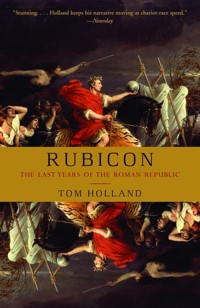
Rubicon: The Last Years of the Roman Republic, by Tom Holland
Holland’s Rubicon is a fast-paced, compelling narrative that vividly outlines the role of corruption in Rome’s collapse. Through profiles of the leaders Caesar, Cicero, and Sulla, Holland demonstrates how political office became transactional: Governors extracted wealth from provinces, bribed voters, and relied on paramilitary gangs to sway elections. What were once civic duties, such as collecting taxes and maintaining order, became investment opportunities, and the commodification of public service weakened once-strong notions of citizenship and civic duty. As an alliance grew between senators and financial powers, public figures began profiting from real-estate speculation, slave trading, and overseas plunder—while masking their involvement. For all his detailed research, Holland’s real gift is for explaining corruption not as a set of individual actions but as a broad culture of permission and self-justification. Rubicon is a warning about how republics decay, and how institutional reverence alone, without cultivating a common moral framework, is not sufficient to keep a state intact.
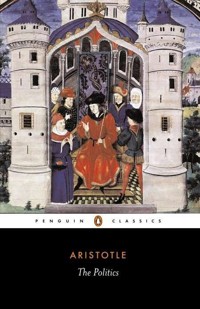
Politics, by Aristotle
Supreme Court Justice John Roberts has said that actionable corruption exists only when there is “quid pro quo,” or explicit exchange, which does not encompass influence, access, or the degradation of social systems for personal benefit. The economic theory of corruption, pushed by many academics, takes a similar approach: It does not treat corporate actions as corrupting unless they are also lawbreaking. The next time you run into someone who wants to suggest something similar, send them to Aristotle. In Politics, he outlines three forms of government and their corrupt counterparts, distinguishing between correct and deviant constitutions by asking whether rulers govern for the common good or for their own advantage. When leaders of any kind stop appealing to the common advantage and instead become motivated by self-interest, their government degenerates: Monarchy, for example, becomes tyranny, without so much as a handshake. The philosopher’s relational, grounded work teaches that every government contains seeds of its own downfall, and that watchfulness, virtue, and civic education are necessary to prevent decline. His account remains relevant today, as he is clear-eyed about the unchanging substance of human nature.
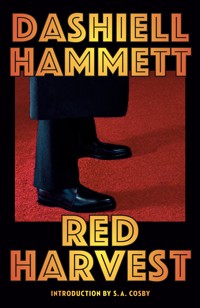
Red Harvest, by Dashiell Hammett
Hammett’s 1929 novel offers one of the most brutal and engaging accounts of normalized lawlessness in America. In Personville, sardonically called “Poisonville,” every association is bought, compromised, or controlled by criminal networks. The police chief is in bed with mobsters. Business owners run protection rackets. Judges are for sale. The narrator, a nameless detective known only as the “Continental Op,” is sent to solve a straightforward crime, but when he starts unraveling the case, he decides to purge the city of its ills—manipulating its gangsters, union bosses, and captains of industry into destroying one another. Hammett’s fictional portrait is allegedly drawn from the time he spent in Butte, Montana, in the early 1900s, when it was dominated by the Anaconda Copper Company and full of labor unrest; he worked for, and was disillusioned by, the union-busting Pinkerton agency. Red Harvest is the dream of democracy in its most cynical, stripped-down form: wealth without justice, survival without virtue.
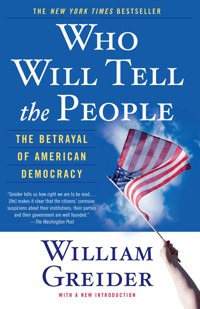
Who Will Tell the People: The Betrayal of American Democracy, by William Greider
More than 30 years ago, Greider, a conscientious journalist with a keen eye for detail, exposed how the American political system had been bent toward wealthy interests who could afford to hire lobbyists. In this prescient document of dysfunction, he tells uncomfortable stories: The revolving door between private and government-agency jobs builds social ties among regulators and the industries they oversee, which inevitably lead to conflicts of interest, he writes; blueprints for legislation are drafted for future administrations by corporate lobbyists; likewise, public hearings are designed for insiders’ benefit, rather than for public accountability. In one emblematic section, Greider details how big banks developed the framework for George H. W. Bush’s 1989 bailout long before it was proposed, setting the terms of the debate far in advance. On Capitol Hill and in corporate boardrooms, he argues, theoretically neutral economic modeling and technocratic jargon are tools of obfuscation, turning moral decisions about who gets benefits or breaks into mystifying discussions that camouflage self-dealing as procedural necessity.
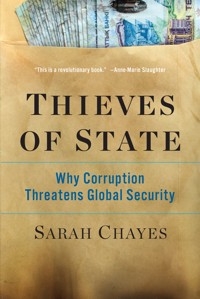
Thieves of State: Why Corruption Threatens Global Security, by Sarah Chayes
Kleptocratic governments are not weak or failing, Chayes argues in this paradigm-shifting 2015 book. Instead, what outsiders mistake as a lack of control is usually careful management of who gets to steal and how the spoils are distributed. Corruption metastasizes, she writes, when rulers and elites design networks of family members, bureaucrats, and security forces that serve to siphon money—and over time, opportunistic graft hardens into a system that is purposefully maintained to keep the cash flowing. In these states, even anti-corruption rhetoric, laws, and commissions can become part of the machine: They’re made purposefully toothless, or selectively wielded against rivals. Most important, these corrupt webs generate extremism and unrest in the long run. Chayes’s central case study is Afghanistan; she argues that the self-serving police, courts, and ministries fueled support for the Taliban. Chayes traces this pattern far beyond Kabul. In Nigeria, corruption in the oil sector and security forces helped Boko Haram take root; in Tunisia and Egypt, rage at theft by officials ignited the destabilizing Arab Spring. When governments fail to deliver services, instead extracting value, Chayes’s book warns, radical alternatives can become far more appealing than the actual state.
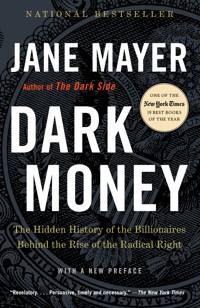
Dark Money, by Jane Mayer
Mayer’s masterpiece, now almost a decade old, remains the definitive investigation of modern campaign finance. Dark Money shows how a small cadre of right-wing billionaires, with Charles and David Koch at the center, reshaped American politics in the 2010s. Her animating phrase came into wide use after the Supreme Court’s 2010 Citizens United ruling, and largely refers to political spending whose source is hidden from the public, usually through a web of nonprofit organizations that allow coordinated political operations to masquerade as apolitical civic activity. The Kochs didn’t merely bankroll candidates, Mayer writes; they constructed an alternative political and philanthropic infrastructure—a sprawling network of foundations, academic programs, media outlets, think tanks, legal societies, and shell organizations—designed to outlast any single election cycle and distance donors’ names and reputations from their activities. Dark Money is not just a story of influence-peddling; it is an anatomy of cultural corruption, in which intellectual legitimacy is bought and public institutions are deceitfully taken over.

Black Reconstruction in America, by W. E. B. Du Bois
The period following the Civil War presented a brief opportunity for a multiracial democracy to take root in the United States. That potential was strangled, Du Bois writes in this book, an essential look at governance and betrayal in America. Reconstruction’s failure rests not only on Ku Klux Klan violence and political dealmaking, but also on the calculated withdrawal of northern financial elites. They had supported it for their own advantage, then abandoned it after securing their desired control over industry, tariffs, and finance. In Du Bois’s telling, this was a national bargain; together, northern capital and southern oligarchy aligned to sacrifice Black citizenship for economic consolidation. Along with a coalition of manufacturers and party bosses, they redirected federal power away from protecting freed people and toward securing national markets, suppressing labor, and stabilizing white-supremacist rule in the South. After outlining that corrupt deal, Du Bois dissects how scholarship sympathetic to the northern interests then rewrote Reconstruction’s history, turning the period into a fable of failure while caricaturing Black political leadership and widespread democratic participation. Black Reconstruction is a masterwork of political economy, historical revision, and moral clarity—and remains a caution for its modern readers.
The post Seven Books About What Corruption Actually Looks Like appeared first on The Atlantic.




